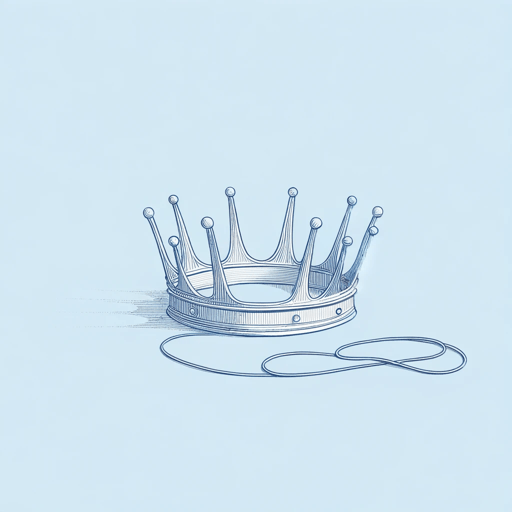20 pages • 40 minutes read
William ShakespeareSonnet 104
Fiction | Poem | Adult | Published in 1609A modern alternative to SparkNotes and CliffsNotes, SuperSummary offers high-quality Study Guides with detailed chapter summaries and analysis of major themes, characters, and more.
Summary and Study Guide
Overview
“Sonnet 104” is one of a sequence of 154 sonnets written by England’s great dramatist and poet William Shakespeare. The sonnets were published in 1609, but the exact dates of composition are unknown. Many scholars believe that the majority of the sonnets were written between about 1592 and 1596, although some may not have been written until the early 1600s. Sonnet sequences were popular in Elizabethan England during the 1590s, so Shakespeare was writing within a familiar genre. The majority of his sonnets (1-126) are addressed to a young man of great beauty, whom the speaker refers to in “Sonnet 104” as the “fair friend” (Line 1). Like many of Shakespeare’s sonnets, “Sonnet 104” explores the theme of beauty and how it is eventually destroyed by time. There has been much speculation about the identity of the friend, but there is no consensus about who he might have been. It is also possible that the sonnets are not autobiographical, in which case it would be futile to supply an actual name to the beloved friend.
The edition of “Sonnet 104” used in this guide is from Shakespeare’s Sonnets, edited by Katherine Duncan-Jones (Thomson Learning, 2001).
Citation Note: Lines from “Sonnet 104” are cited using the relevant line number(s) alone, i.e., (Line 1). Line numbers from other sonnets are cited using the sonnet number followed by a period and relevant line number(s), i.e., (103.7).
Poet Biography
William Shakespeare was born in Stratford-upon-Avon, England. His exact date of birth is unknown, but he was baptized on April 26, 1564. He was the eldest son of John Shakespeare, a prosperous glovemaker who also sold barley and timber, and his wife, Mary Arden, who was the daughter of a wealthy landowner. Shakespeare likely attended Stratford’s King Edward VI Grammar School, although this cannot be confirmed by any official records. In 1582, Shakespeare married Anne Hathaway. The couple had three children: Susanna, born in 1583, and Judith and Hamnet, twins who were born in 1585.
At some point in the mid- to late 1580s, Shakespeare left his hometown for London. By 1592, he was making a name for himself there as an actor and playwright, as can be seen in a mocking reference to him in a pamphlet by Robert Greene, a rival playwright. In 1594, Shakespeare became an actor and playwright for a leading acting troupe, the Lord Chamberlain’s Men, which became known as the King’s Men after the accession of King James 1 in 1603. Shakespeare was also a shareholder in the company. After 1599, the Chamberlain’s Men performed in the Globe Theatre, which they built on the south bank of the River Thames.
Shakespeare was primarily a dramatist, but he also wrote two long narrative poems, Venus and Adonis (published in 1593) and The Rape of Lucrece (1594). He prospered during the 1590s, and in 1597 he bought New Place, a large house in Stratford. By 1598, Shakespeare’s sonnets were circulating among his friends, and they were published in 1609 in a collection of 154 sonnets.
Over the course of his career as a dramatist, Shakespeare wrote 37 plays, including comedies, tragedies, histories, and romances. His earliest plays included The Comedy of Errors and Love’s Labour’s Lost, likely written between 1588 and the early 1590s. His tragedies Hamlet, Othello, Macbeth, and King Lear were likely written between about 1600 and 1606, although there is no general agreement among scholars as to the exact date of composition of these and many other plays. Shakespeare’s final plays were The Tempest (around 1611) and Henry VIII (1612-13).
In 1612, Shakespeare retired to Stratford, where he died on April 23, 1616, at the age of 52.
Poem text
To me, fair friend, you never can be old,
For as you were when first your eye I eyed,
Such seems your beauty still. Three winters cold
Have from the forests shook three summers’ pride,
Three beauteous springs to yellow autumn turned
In process of the seasons have I seen,
Three April perfumes in three hot Junes burned,
Since first I saw you fresh, which yet are green.
Ah, yet doth beauty, like a dial-hand,
Steal from his figure, and no pace perceived;
So your sweet hue, which methinks still doth stand,
Hath motion, and mine eye may be deceived:
For fear of which, hear this, thou age unbred:
Ere you were born was beauty’s summer dead.
Shakespeare, William. “Sonnet 104.” 1609. Poetry Foundation.
Summary
The speaker, likely meant to be William Shakespeare himself, addresses a beautiful male friend. He says that in his eyes, the friend can never be old, noting that he looks exactly the same now as he did when the speaker first met him, three years ago. The speaker then mentions that he has observed the passage of the seasons over a period of three years. The rich foliage of the trees in summer is followed by the cold of winter, when the trees are bare of leaves, and the beauties of spring are soon followed by the yellowing of the leaves in autumn. In further elaboration, the speaker mentions the perfumes of the flowers in spring that disappear in the heat of June. He then repeats the statement that in spite of the three years, his friend looks just the same as he ever did.
At the beginning of Line 9, however, the speaker forces himself to face the truth. He compares beauty to the hand of a clock or watch. Just as the hand of a clock moves imperceptibly, so too does beauty as it slips away from the friend’s face. The movement, of both clock hand and beauty, is so slow that it is impossible for the human eye to see it. The speaker then acknowledges that the friend’s pleasing form, which seems not to have changed, actually has changed and continues to change. This leads the speaker to admit that he has been deceived by appearances. Taking that into account, he addresses future generations, informing them that even before they were born, the summit or apex of beauty had already been attained (in the friend) and so will have died before they arrive.
Related Titles
By William Shakespeare

All's Well That Ends Well
William Shakespeare

A Midsummer Night's Dream
William Shakespeare

Antony and Cleopatra
William Shakespeare

As You Like It
William Shakespeare

Coriolanus
William Shakespeare

Cymbeline
William Shakespeare

Hamlet
William Shakespeare

Henry IV, Part 1
William Shakespeare

Henry IV, Part 2
William Shakespeare

Henry V
William Shakespeare

Henry VIII
William Shakespeare

Henry VI, Part 1
William Shakespeare

Henry VI, Part 3
William Shakespeare

Julius Caesar
William Shakespeare

King John
William Shakespeare

King Lear
William Shakespeare

Love's Labour's Lost
William Shakespeare

Macbeth
William Shakespeare

Measure For Measure
William Shakespeare

Much Ado About Nothing
William Shakespeare

